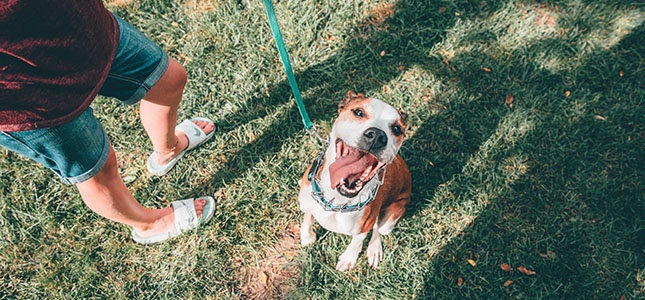
MVA Monthly Mouthful – Animal Allergies
By Shara Bankhead, CVT | Specialty Nurse Manager
AHHCHOOOO!! ‘Tis the season for many of us to be inundated with the annual symptoms of sneezing, runny nose and/or itchy eyes, and these are made even worse by those of us that have to address other respiratory conditions i.e. asthma, that already make breathing difficult…ahh those spring allergies!
It’s likely not a shock for any of you that our furry family members may also experience seasonal allergies, but what may be surprising are how they show us they’re having a reaction as they are NOT the same as ours.
Rarely do pollens, molds and other outdoor allergens cause our canine companions and feline friends to sneeze or have other respiratory issues. What we typically see with them in response to these allergens are either itchy skin, and/or ears. Other signs and symptoms of animal allergies may include but are not limited to:
- Reddened, crusty or scaly skin patches
- Odor
- Overgrooming/licking sides, elbows, belly and/or groin areas
- Reddened eyes, muzzle, or chin
- Hair loss
- Watch for excessive scratching, rubbing against carpets or furniture
- Brown discoloration of the fur where licking/chewing occurs (paws are the most common)
- Waxy discharge from ears; odor
Wiping your dog’s coat and paws when they come inside after a walk, and if your cat has similar concerns, keeping them away from or not opening windows during higher pollen count days, may help to alleviate the distribution of these allergens throughout your home. Upping your vacuuming and dusting game – here’s a reason to upgrade to a new one or shake off that Swiffer – will also aid in lightening the allergen load. Cleaning out your pet’s ears with a cotton ball and veterinary approved cleaner can help stave off infections, but when it comes to allergy prevention, a bit more is likely going to be necessary.
Some recommendations for addressing seasonal animal allergies include the following:
- Year-round flea prevention
- Flea bites make an already itchy pet feel even worse
- Regular bathing (dogs)
- 1-2X/week
- Dog specific shampoo – medicated or colloidal (oatmeal)
- Check with your vet; if your dog has dry/sensitive skin this may be contraindicated
- Diet
- Well-balanced
- Limited ingredients or a novel protein (rabbit, duck, venison)
- Beef & chicken are top food allergens for dogs
- Bedding
- Hypoallergenic fillers
- Wash weekly in fragrance & dye-free detergent
- Allergy Testing
- Recommended if symptoms are severe and non-responsive to previous treatment (medications, diet change, etc.)
- Ongoing Care
- Lifelong
- Address issues as they arise
Should you notice any of the above-listed signs/symptoms, please contact your veterinarian and also know that we have board-certified veterinary dermatologists on our team should any additional testing and/or interventional treatments be necessary. Please remember, even though you’re simply wanting your pet to feel better, to not administer any over-the-counter allergy, antihistamines, or anti-itch medications without consulting a veterinarian first.
If your pet is experiencing a systemic allergic reaction to an insect bite or sting that has any accompanying facial swelling and or respiratory difficulties, this is an emergent situation and our ER team is here for you and your pet 24/7/365.
